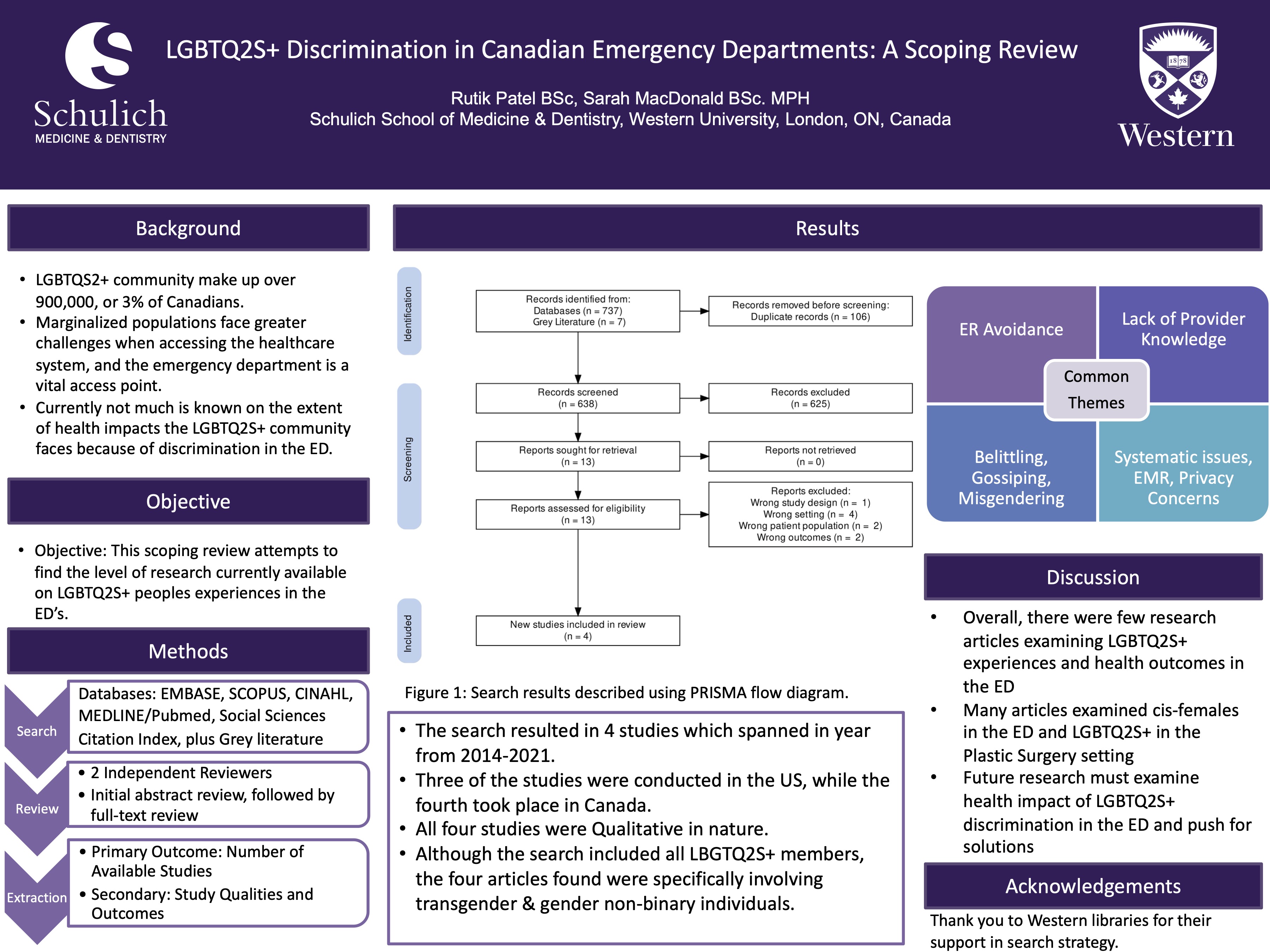SRFP065: LGBTQ2S+ Discrimination in Canadian Emergency Departments: A Scoping Review
Rutik Patel, BSc; Sarah MacDonald, BSc, MPH
Abstract
Objective: To identify key areas of discrimination for LGBTQ2S+ in Canadian ED’s.
Study Design: Scoping review.
Setting/Dataset: Emergency Departments, Urgent Care and Nursing Stations in Canada are the primary setting. EMBASE, SCOPUS, CINAHL, MEDLINE/Pubmed, and JSTOR are the primary datasets.
Population Studied: The studies included must involve the LGBTQ2S+ community and must examine patient outcomes in the ED. The studies must have been performed in Canada (may widen if the scope is too small) and must be available in English.
Outcome Measures: Primary outcome measure will be the number of available studies found. Secondary outcomes include various ED outcomes (wait times, pain control, investigations, patient experience etc).
Anticipated Results: It is anticipated that there may be a gap of knowledge in this area. For ED outcomes, it is anticipated that there will be disparities in care for LGBTQ2S+ patients.
Conclusions: This scoping review may highlight a key area of investigation for future researchers.

Debora Goldberg
dgoldbe4@gmu.edu 11/20/2021Rutik and Sarah, Although heartbreaking there is little research resulting from your review, your study has identified a critical area for future research. One possible reason for few studies (and only qualitative identified) is that demographic information on gender and gender preferences was limited in the past. This is opening up but still not collected in a meaningful way. It is clear that more research needs to occur on LGBTQ2S+ need to be done. Thank you so much for your work on this issue. All the best, Debora